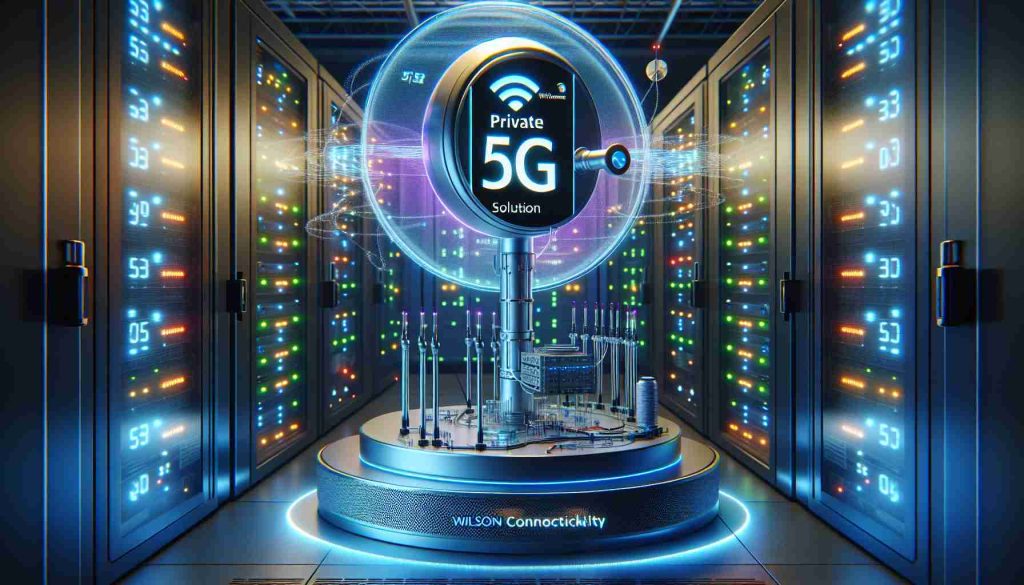In a recent town meeting, the selectmen of Southwest Harbor decided against a proposal from Ubicquia that aimed to enhance the local telecommunications infrastructure. During the session, the concept was presented by Mark Carter, vice president of RTE Energy Solutions, who described the technology as compact radios designed to be integrated with existing streetlights.
These devices, functioning similarly to miniature cell towers, would have provided enhanced 4G and 5G connectivity across various areas of the town. Carter emphasized that incorporating these fixtures could potentially lead to improved network capacity and coverage for residents and visitors alike. Despite the potential benefits outlined, the selectboard ultimately chose not to move forward with the installation, reflecting a cautious approach towards new technological initiatives within the community.
The decision highlights the ongoing debate in many towns about the balance between technological advancement and local governance priorities. Community members continue to voice their opinions on the impact of such advancements on their daily lives. As towns consider upgrading their connectivity options, balancing historical preservation, aesthetics, and modern needs remains a challenging aspect of local decision-making.
This recent development leaves Southwest Harbor looking for alternative solutions to improve its telecommunications infrastructure while maintaining its unique character.
Enhancing Local Connectivity: Tips, Life Hacks, and Interesting Insights
In light of the recent decision by the selectmen of Southwest Harbor regarding telecommunications infrastructure, it’s important to explore ways that residents and communities can enhance their connectivity and make informed decisions about technology. Here are some useful tips, life hacks, and interesting facts to consider.
1. Explore Community Wireless Initiatives
One great way to improve connectivity is to participate in or start community-based wireless initiatives. Many towns have formed cooperatives to create shared networks that can provide better coverage. Getting involved can not only help improve service but also strengthen community bonds.
2. Optimize Your Home Network
For those struggling with weak signals at home, optimizing your Wi-Fi network can make a significant difference. Position your router in a central location within your home, reduce physical obstructions, and consider using a Wi-Fi extender to boost connectivity where needed.
3. Stay Informed on Local Decisions
Keeping abreast of local governance decisions regarding technology and infrastructure can empower you to voice your opinions constructively. Attend town meetings, communicate with your local representatives, and engage with community forums to share your thoughts on initiatives that could benefit connectivity.
4. Leverage Mobile Connectivity
In areas with potential delays in upgrading infrastructure, utilizing mobile hotspots can be an immediate solution. Many smartphones offer the option to create a hotspot, allowing you to connect multiple devices while on the go. Check with your carrier for data plans that support this functionality without incurring additional costs.
5. Consider Future Technologies
With the rapid development of telecommunications technology, it’s valuable to stay informed about upcoming solutions that may suit your community’s needs better. Innovations such as 5G and edge computing might provide transformative benefits for local services.
Interesting Fact:
Did you know that utilizing compact radio technology in urban settings is becoming increasingly common? These mini-towers, described by Mark Carter from RTE Energy Solutions, can leverage existing infrastructure (like streetlights) to enhance connectivity without the need for extensive new constructions.
6. Advocate for a Balanced Approach
As discussions about telecommunications upgrades continue, advocate for a balanced approach that respects community aesthetics and historical preservation. Engaging with local decision-makers can lead to solutions that meet modern needs while preserving the town’s unique character.
In conclusion, while the decision in Southwest Harbor may not align with everyone’s desires for improved connectivity, there are numerous ways communities can proactively work towards better telecommunications solutions. Staying engaged, informed, and creative about local resources can foster a more connected and supportive environment for all residents.
For more information on community initiatives and technology advocacy, visit National Good Data for resources and support on enhancing local connectivity.























